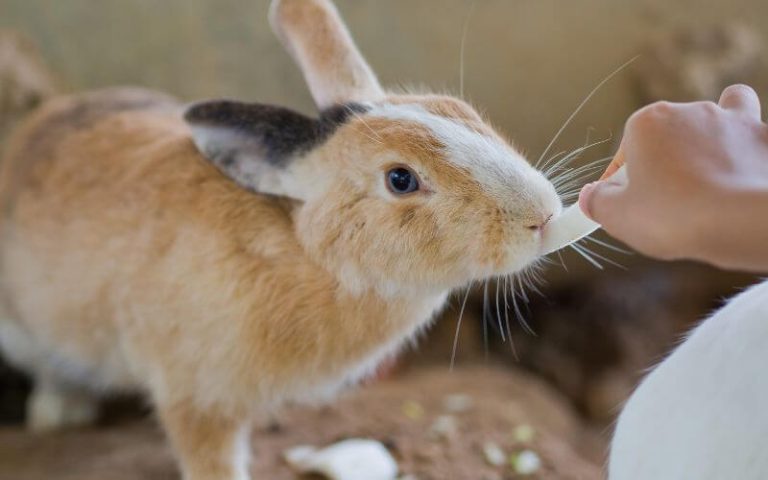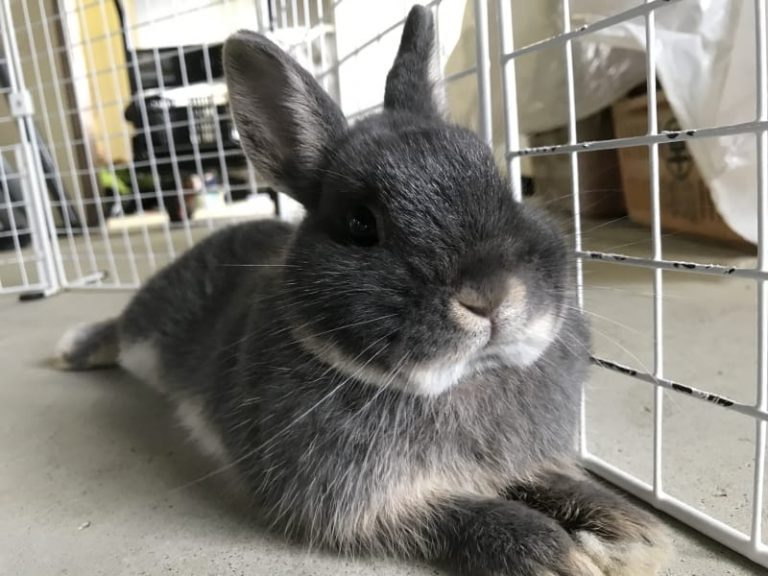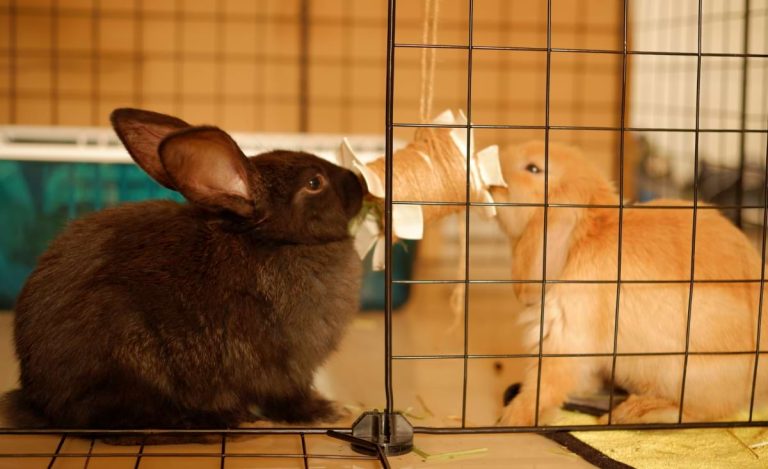15 Reasons Not to Get a Rabbit
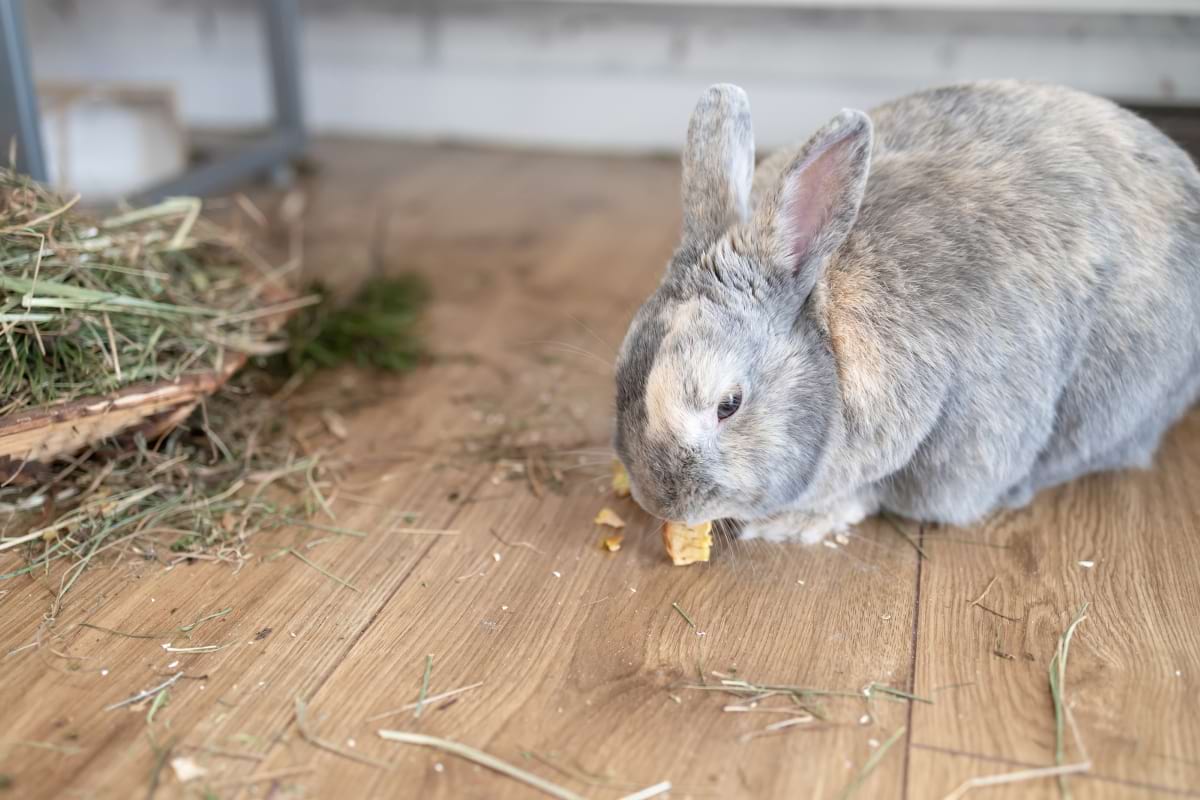
Rabbits are so cute, and they look so sweet and cuddly. But don’t be fooled into thinking these are easy starter pets.
Having a rabbit isn’t the low commitment you may think it is. Rabbits are just as much work as any other pet (and cost as much money, too).
Keep reading to learn the drawbacks of having a rabbit so you can make an informed decision before jumping into a decade-long commitment.
1. Rabbits Are Not Suitable For Small Children
Rabbits are not suitable pets for small children. Firstly, a child can’t play with a rabbit in the same way as they could with a dog or even a cat. Plus, rabbits are not overly affectionate in the way a child would want from a pet. These things alone are enough for a child to quickly forget about the rabbit and move on to something else.
They also don’t do well in high-paced and loud environments, which children can’t help but create. Also, young children aren’t physically able to hold a rabbit properly, which puts the rabbits at risk of injury, as well as your child should the rabbit scratch them.
2. They Are High-Maintenance
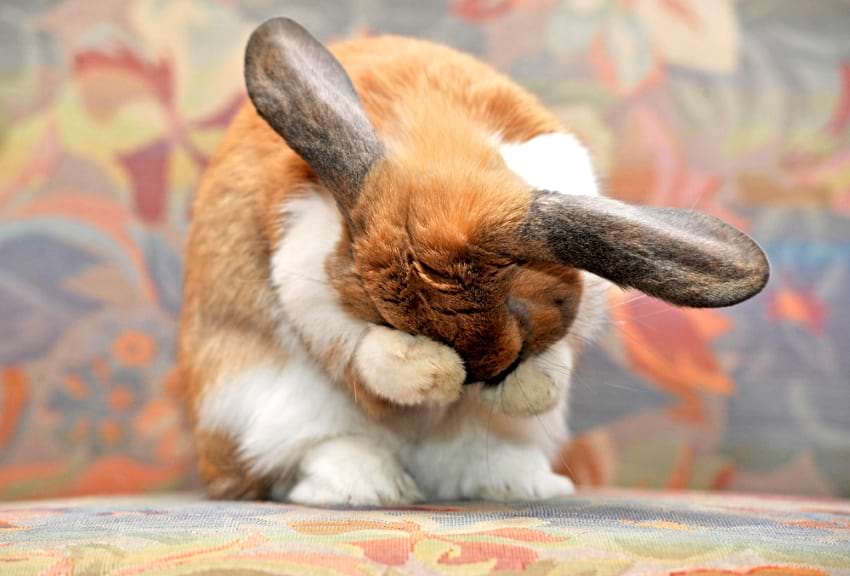
Looking at a rabbit, you may not think there’s a lot of maintenance involved. But you’d be wrong. Rabbits are really high-maintenance. In fact, I would say that my rabbit requires just as much as my other animals, if not more.
Rabbits need to be litter-trained to avoid constant sweeping or vacuuming. But even then, you’ll have to keep their litter box and enclosure clean, or their urine can become quite smelly.
3. Rabbits Need a Quiet Atmosphere
When a rabbit is exposed to constant startling, they get stressed out easily, which can cause serious health problems. They need peace and quiet to really thrive. They don’t function well in high-activity or loud situations. Of course, they can stand the occasional disturbance as long as they’ve got a quiet place to hide away.
4. They Are Habitual Chewers
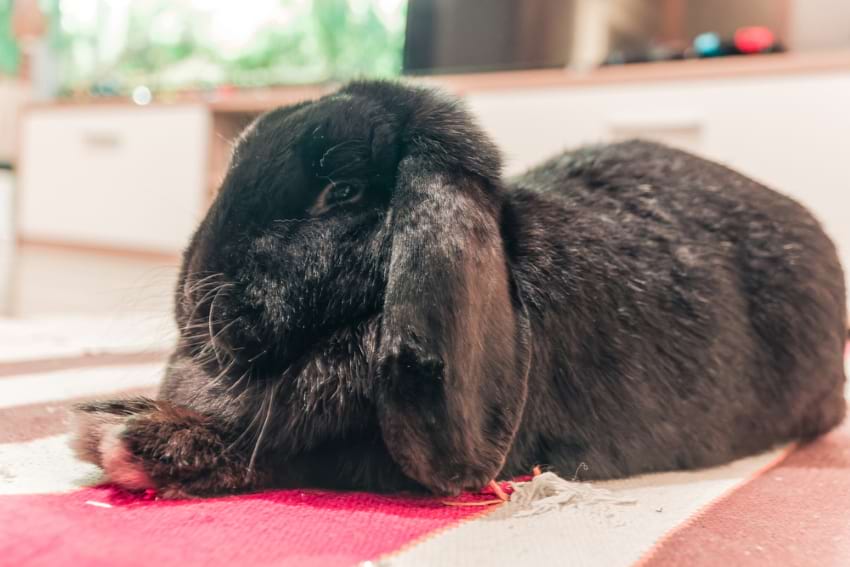
Rabbits don’t just love to chew. They need to. Their teeth will grow too long if they don’t have enough things they can chew. Plus, it’s an instinct and one you can’t change. Rabbits are habitual chewers and diggers.
Even when you bunny-proof every corner of the house and get them all the chew toys they want, there’s still a chance of expensive things getting chewed. Furniture, wire, books, baseboards, you name it. If they can find it, you bet a rabbit will try to chew on it.
5. Rabbits Aren’t as Cuddly as You Think
Rabbits look like they love to cuddle, but they really don’t like it in most cases. Well, not in most cases. Again, they show affection differently than other pets, like a dog or a cat.
If you have a good bond, you can cuddle with a rabbit on its terms. Your rabbit may lay on your lap or sit by you. But forming that bond takes a lot of effort and time, and even then, that specific rabbit may not like to cuddle.
6. Keeping a Rabbit Is More Expensive Than a Cat
Don’t get a rabbit, thinking they cost nothing to keep. They need a lot to keep them healthy and happy, and that doesn’t come cheap. In fact, they’re shown to be more expensive than cats.
This ASPCA study lists the yearly costs of having a cat at $1149. The yearly costs of having a rabbit are almost twice that.
The upfront costs of getting a rabbit can reach hundreds of dollars. Then, you’ll likely spend at least $200 on your rabbit every month for its entire life, around 10 years. And that’s just giving your rabbit the bare minimum.
7. Rabbits Need a Lot of Space
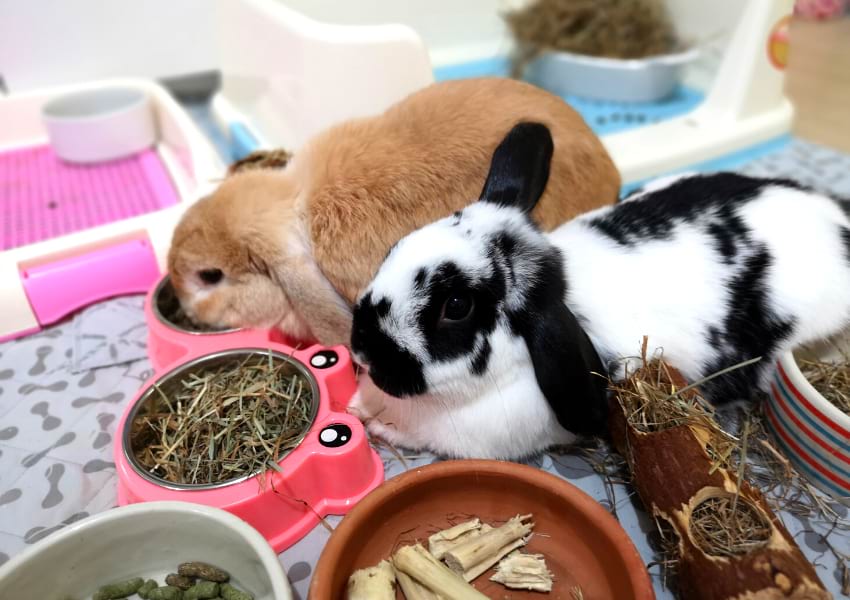
Rabbit cages sold in stores are WAY TOO SMALL for rabbits to actually live in. Pet rabbits need a lot of space to run around and exercise. 4-6 feet to be exact. And that’s just the enclosure. They also need at least 32 square feet of exercise space.
Also, rabbits should never be in the cage all day, even if it’s big enough. They need a few hours of exercise and playtime in an exercise space or just running around the room. Really, rabbits do much better when they have free roam of the house, but that also means you have to bunny-proof your whole home.
8. They Need Lots of Attention
Rabbits need much more attention than you think. They are extremely social creatures and need to form bonds. That’s why they’re not supposed to be alone, but we’ll get into that soon.
Alone or not, rabbits need plenty of one-on-one time for bonding and training. Plus, they need things to keep from becoming bored because rabbits can get destructive or depressed without something to occupy their minds.
9. A Rabbit’s Dietary Needs Can Get Complicated
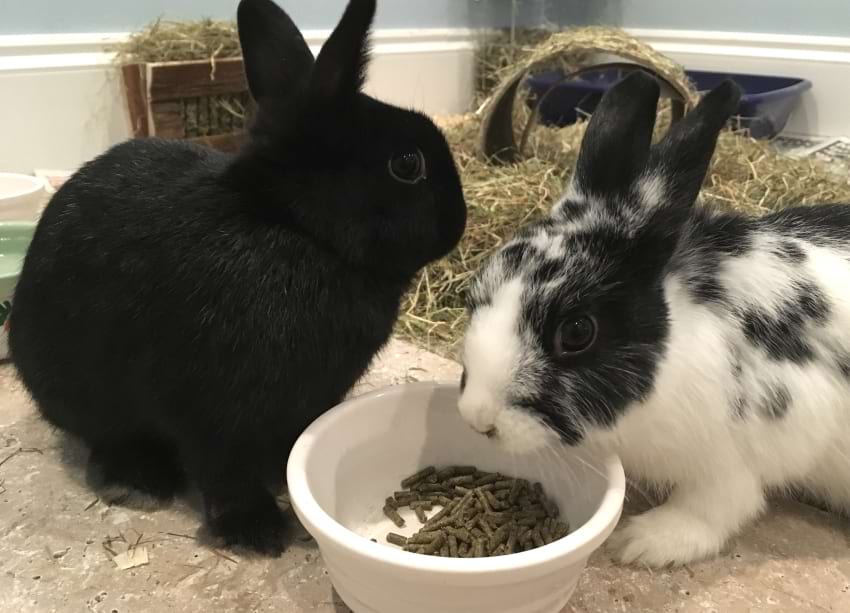
Rabbits aren’t like other pets, who can survive with good dry food. A rabbit’s digestive system is sensitive, and they need a well-balanced diet to keep it in working order. You may be surprised to read this, but dry food is the smallest part of a rabbit’s diet.
Mostly, it’s hay and grass, then there’s greens and a bit of fruits, and then at the bottom of the list, there’s dry food. There’s also a long list of foods a rabbit CAN’T eat.
10. Veterinary Care Can Be Expensive & Hard To Find
Rabbits need regular vet visits like any other animal and can cost hundreds of dollars every year. And that’s not covering any emergencies. But that’s not the only difficulty.
Rabbits are considered exotic pets, which means two things. Regular vets normally won’t see them, and those that do charge a pretty penny. It took me forever to find a good vet to take my rabbit on.
11. They Are Delicate
Rabbits need to be handled with care, and I mean that in more ways than one. First, rabbits are small. Their bones break easily. Being dropped or jumping out of our arms can become disastrous. No matter the breed or size, rabbits need to be literally handled properly.
The other meaning of that is their mental health. Adding to their physical fragility, they also have a very complex emotional makeup, which means they get depressed and stressed easily.
12. Rabbits Don’t Do Well Alone
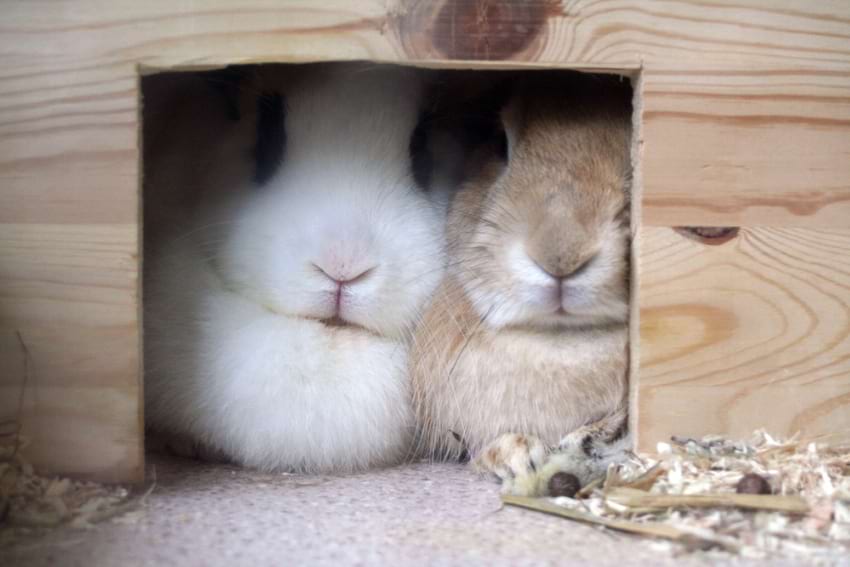
Rabbits are not meant to be alone. In the wild, rabbits live in large colonies, but even domestic rabbits have specific social needs that only other rabbits can meet.
Alone, a rabbit will need even more of your attention and will be more likely to become depressed. That’s why it’s much better to have rabbits in bonded pairs. So, you can’t just get one.
13. They Can Be Aggressive
Speaking of fighting, rabbits aren’t all cute and friendly. Some can get quite mean when there are hormones or stress involved. Rabbits feel anger and get stressed out, just like you and me and may lash out by biting or scratching.
Aggression isn’t all that common in rabbits, but it can happen. I’ve seen it plenty of times from both genders and in both fixed and unfixed rabbits. But, I will say that this behaviour is much more common in males or nursing females.
14. Rabbits Don’t Always Do Well With Other Pets
Rabbits are prey animals. They’re not really that compatible with dogs and cats– predators.
While good relationships are possible, it doesn’t always happen like that, and it can take a long time to form that bond.
If your animals aren’t compatible, your rabbit may be in serious danger. Even separated, a rabbit will still know there’s a predator present and may become stressed by the sight or smell. That stress can cause health problems in the long run.
15. They Shed a Lot
Grooming is really important. Not just for keeping loose hairs off the floor but also for your rabbit to shed properly. Not all breeds shed, but most do. And they shed a surprising amount of hair for such little critters, especially around spring and fall.
Weekly brushing is usually needed, but some breeds need more. I should also mention that you’ll also need to learn proper nail clipping or find a vet who can do it.
Conclusion
Rabbits are adorable, and they can be fabulous pets, but they come with a lot of drawbacks. If you’re seriously interested in having a rabbit, be prepared to put up with these drawbacks for the next 10-12 years of your life.
Having a rabbit may not be what you expect, and that won’t be the rabbit’s fault. So, if you want a rabbit, please take time to consider everything before deciding because it’s a big commitment.

